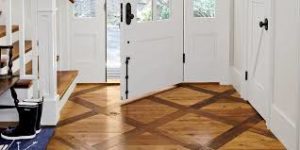Engineered hardwood flooring is a type of wood flooring that has a thin veneer over a core of wood or other fiberboard. The design and thickness of the core and veneer will differ from manufacturer to manufacturer. This construction detail will have a large impact on the durability, stability, and appearance of your floor. In addition to the three main types of engineered wood, there are many variations in the wood species used to create engineered wood planks. Some examples include oak, maple, and Brazilian Cherry, as well as exotic wood species like bamboo and mahogany.
I f you have engineered hardwood flooring, make sure that you maintain it properly. This means not using regular vacuums or steam mops, which can damage the flooring. Also, try to avoid using harsh cleaners and wet mops on the flooring, as these methods can cause excessive moisture and damage the engineered wood planks. Find Out More for information.
f you have engineered hardwood flooring, make sure that you maintain it properly. This means not using regular vacuums or steam mops, which can damage the flooring. Also, try to avoid using harsh cleaners and wet mops on the flooring, as these methods can cause excessive moisture and damage the engineered wood planks. Find Out More for information.
Engineered hardwood is more durable than solid hardwood. Its thick surface allows it to fit over various subfloors, including over radiant heating systems. Maintenance is simple, and sweeping and light mopping will keep your flooring looking great. And, when you’re installing engineered hardwood, you can choose a species that is less expensive than the one you’re replacing.
Engineered hardwood flooring is easy to install and requires no special tools. It’s often installed using a click-and-lock system, which locks the planks together over the subfloor. In some cases, tongue and groove adhesive may be required. Alternatively, engineered hardwood can be installed by gluing or nailing it down. However, it’s important to keep in mind that hardwood is more susceptible to moisture than other types of flooring, so you must carefully consider the location of your floors.
Engineered hardwood flooring is an excellent option for homeowners who want a high-end look to their floors. The wood used in engineered floors is genuine, and is available in a wide range of plank widths and stain colors. It’s also durable enough to install throughout the home, and you can even install it over a concrete slab subfloor. These floors are as beautiful as solid wood floors, but are much more affordable.
As an added benefit, engineered hardwood can add resale value to your home, which can mean a high return on your investment. Depending on your needs, you can expect to recoup 70% to 80% of the initial investment in engineered wood. Compared to solid hardwood, engineered wood is also more moisture-resistant and durable. It’s also more versatile than solid wood, and can be installed in more areas of the home than solid hardwood.
